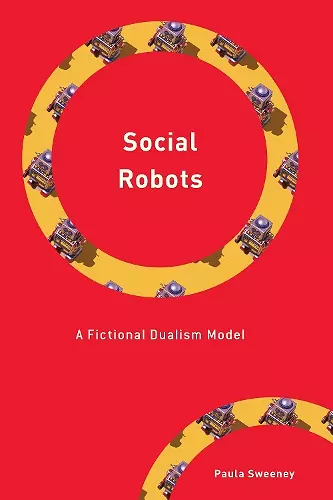Social Robots
A Fictional Dualism Model
Format:Hardback
Publisher:Bloomsbury Publishing PLC
Published:6th Dec '23
Currently unavailable, and unfortunately no date known when it will be back

This book examines the impact of social robots on ethics and emotional engagement, proposing a fictional dualism model for understanding our connections with them.
Social robots have become an essential part of modern life, serving various roles such as customer service assistants, caregivers, and companions. In Social Robots, the author explores how the integration of these robots is reshaping our understanding of ethics, metaphysics, and epistemology. The book highlights the revolutionary implications of social robots on our fundamental beliefs, suggesting that their presence challenges our established theories and intuitions.
The emotional responses elicited by social robots raise important questions about moral consideration. Some argue that these robots, being mere machines, should not be designed to foster emotional connections, while others believe that their ability to evoke feelings warrants ethical consideration. The fictional dualism model presented in Social Robots offers a fresh perspective, suggesting that our interactions with these robots create a fictional narrative that allows us to engage emotionally without attributing moral status to them. This relationship mirrors our connection with fiction, enhancing our lives without necessitating moral obligations towards the robots.
Paula Sweeney's work distinguishes the fictional dualism model from other approaches, providing a framework that encourages emotional engagement while maintaining ethical boundaries. The model also sets conditions for trust in social robots and allows for their individuation as distinct entities, even when they operate collectively. Through this exploration, Social Robots invites readers to reconsider their relationships with these machines in a nuanced and thoughtful manner.
Whether social robots merit full moral consideration is a major question. Sweeney argues for a model of fictional dualism to better analyze and deal with social robots, to whom people may respond in social and emotional ways but without the demand for moral consideration. She proposes seeing social robots as embodied fictional characters with mental lives that humans create by engaging with them. She claims this model can explain a range of feelings people might develop by interacting with these entities without justifying their full moral consideration. This model, she argues, legitimates human trust in these entities, but not a trust based entirely on appearance. Sweeney believes this obligates developers to be abundantly clear about these robots' capabilities and any changes to them. People must develop a background awareness that robots are not capable of having feelings for them. Recommended. All readership levels. * Choice Reviews *
Paula Sweeney presents a compelling new theory of social robots: the fictional dualism model. Strikingly, Sweeney thinks it makes sense to respond emotionally to social robots, but that it is a category mistake to treat them with moral consideration. Why? Sweeney’s intriguing suggestion is that social robots are embodied fictional characters. -- Sven Nyholm, professor of the ethics of artificial intelligence at the Ludwig Maximilian University of Munich, and author of Human and Robots: Ethics, Agency, and Anthropomorphism and This is Technology Ethics: An Introduction
In times when social robots invite emotional and social responses, it is important to reflect on the ethical questions this raises. With her fictional dualism model, Paula Sweeney distinguishes between robots as technological objects and their fictional overlays. In this way, she aims to seriously analyze our tendency to anthropomorphize with robots and the role of fiction in this, without arguing that we should grant such robots moral consideration. Recommended for everyone interested in the ethics of robotics and artificial intelligence. -- Mark Coeckelbergh, professor of philosophy, University of Vienna, author of The Political Philosophy of AI, AI Ethics, and Robot Ethics
ISBN: 9781538185025
Dimensions: 236mm x 157mm x 18mm
Weight: 417g
152 pages